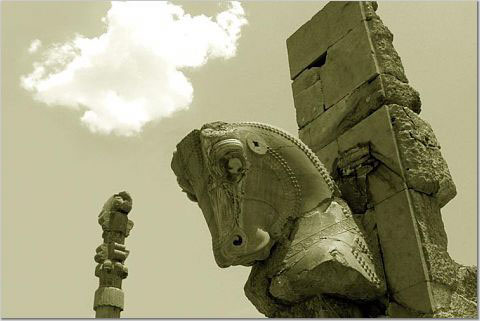

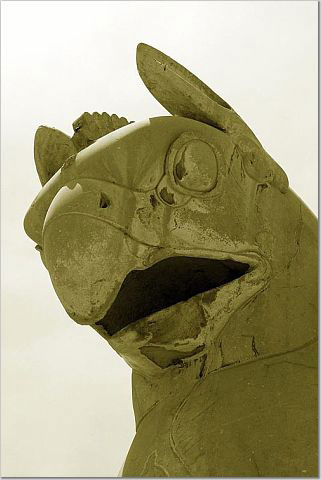


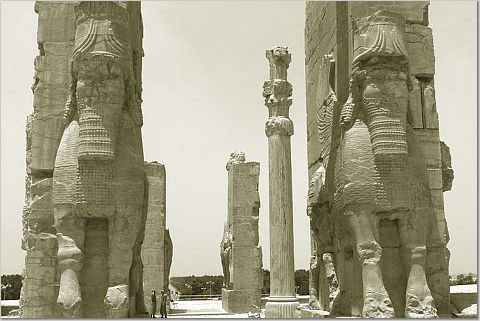
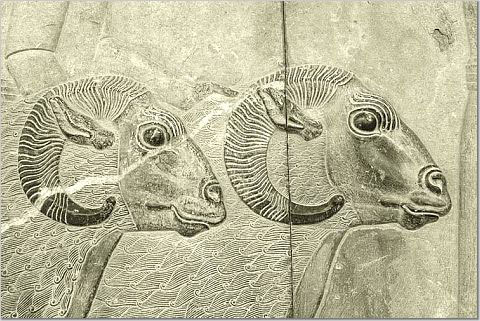
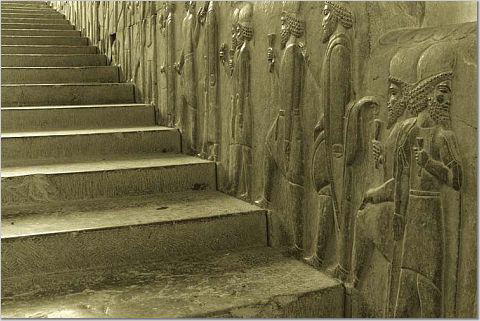

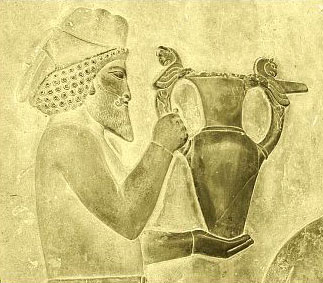
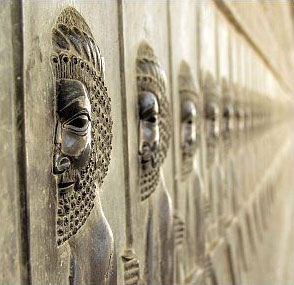
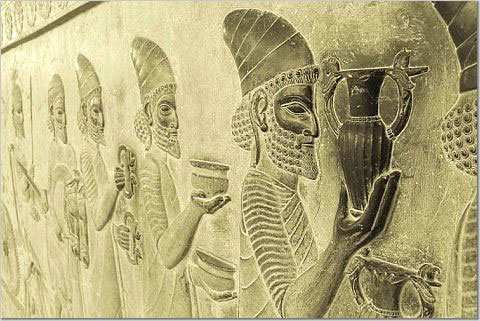
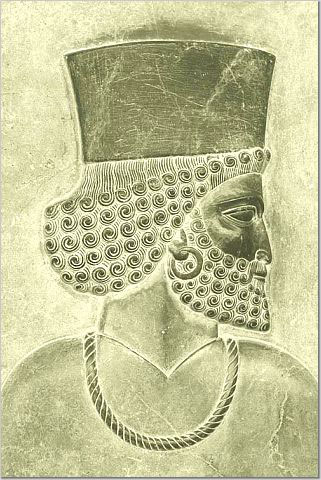
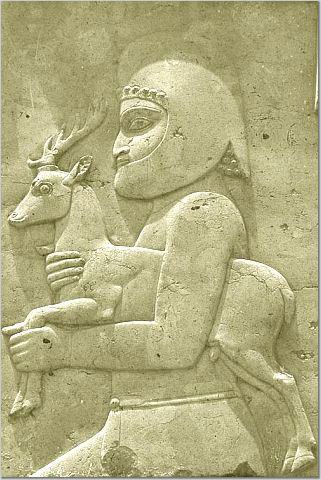
Posted on 09/05/2004 8:09:50 PM PDT by freedom44
It's amazing the things which have survived, and particularly in this case considering that this particular faith was not necessarily well thought of by the ancient Hindu.All Consuming FaithGriffon vultures are dying across India, apparently succumbing to a mysterious illness. Wildlife experts are becoming increasingly concerned about the viability of one species in particular. But for India's ancient Parsee religion the vultures' decline poses a more practical problem. Parsees, the religious descendants of the Zoroastrians of ancient Persia, rely on vultures to dispose of their dead, and the bodies are piling up.
by Debora MacKenzie
5 August 2000
New Scientist magazineEarliest Civilizations of the Near East"The people of Catal Huyuk buried their dead below the platforms of their houses and shrines only after the flesh had been removed, probably for the sake of hygiene. The primary process of excarnation may have taken place in light structures, built of reeds and matting as depicted on the wall of a shrine, or by means of vultures." [p 86]
by James Mellaart
1965, LOC 65-19415
Library of Early Civilizations
"In this book we see the first beginnings of agriculture from somewhere around 9000 BC, continuing in cultures in which at first pottery, long thought to be the main criterion of a 'neolithic' culture, was not in fact made, and then before many centuries have elapsed, the first use of metals -- copper or lead or gold, cold-worked from the native metal from the sixth millennium BC. The old technological-evolutionary stages of Mesolithic, Neolithic, Chalcolithic and so on are rapidly losing their crisp outlines, but only because we are now able to perceive something which, because it is more muddled and imprecise, is more human." [Stuart Piggott, general editor's preface]
Regarding their ancient scriptures, Mary Settegast wrote:Dancing with Siva:"Asceticism and celibacy are condemned; purity and avoidance of defilement... are valued... Zoroastrianism stresses monotheism, while recognizing the universal sway of two opposite forces... Man's life... is a moral struggle, not a search for knowledge or enlightenment. He is put on the earth to affirm and approve the world, not to deny it, not to escape from it... Man has but one life. He also has the freedom to choose between good and evil... At death, each is judged and consigned to his deserved abode... Though there is resurrection of the dead, a judgment and a kingdom of heaven on earth... all sins are eventually burned away and all of mankind exists forever with Ahura Mazda. Hell, for the Zoroastrian, is not eternal."
Hinduism's Contemporary Catechism
by Satguru Sivaya Subramuniyaswami
[pp 558-559, "Zoroastrianism"]
Luciano Canforra wrote:Plato PrehistorianPerhaps three-fourths of the original Zend-Avesta... is believed to be lost... The Avesta was not written down until the Sassanian period (the third to seventh centuries A.D.)... Zarathustra's Gathas are particularly obscure... Not only do the Gathas appear to be a good deal older linguistically than even the oldest parts of the Younger Avesta, but the same characters who speak and act with immediacy... are represented in the Younger Avesta as belonging to a remote past... The Fravardin Yast [of the Younger Avesta] ...contains references to Iranian peoples who were apparently unknown to the earliest Achaemenid records of the sixth century B.C. And with the single exception of "Ragha," believed to be ancient Rayy near Tehran, no allusion is made to a known Iranian city or village... A generic use of the prophet's name might also explain the occasional indications in ancient literature that there was more than one historical Zarathustra. Pliny, for example, when referring to the Zarathustra born 6,000 years before Plato, remarked that "it is not so clear whether there was only one man of this name, or another one later on."
by Mary Settegast
[pp 212-214]
The followers of Zoroaster were persecuted by the hierarchy of Zervan. The worship of Zervan was largely abandoned in favor of Zoroastrianism, but may have hung on here and there until Islam arrived. Zervan temples are not known to me; maybe a search will turn up something. My guess is that Zervan was worshipped in shrines at geographically significant places (foot of the mountain pass, ford over the river) and on the outskirts of villages and towns. I think now of Petra, with its high places where great bonfires were built to worship their now-obscure deities.The Vanished LibraryThe translation of the Iranian writings attributed to Zoroaster, amounting to more than two million lines of verse, was remembered centuries later as a notable feat...
by Luciano Canforra
[pp 24]














Some of those source and quotes are rather strange.
PERSIA:
An empire which extended from India to Ethiopia, comprising one hundred and twenty-seven provinces, (Daniel 6), Esth. 1:1;
Government of, restricted by constitutional limitations, Esth. 8:8; (Daniel 6:8-12).
Municipal governments in, provided with dual governors, Neh. 3:9, 12, 16-18.
The princes advisory in matters of administration, (Daniel 6:1-7).
Status of women in, queen sat on the throne with the king, Neh. 2:6.
Vashti divorced for refusing to appear before the king's courtiers, Esth. 1:10-22; 2:4.
Israel captive in, 2 Chr. 36:20;
captivity foretold, Hos. 13:16.
Men of, in the Tyrian army, Ezek. 27:10.
Rulers of: Ahasuerus, Esth. 1:3.
Darius, Dan. 5:31; 6; 9:1.
Artaxerxes I, Ezra 4:7-24 .
Artaxerxes II, Ezra 7; Neh. 2; 5:14.
Cyrus, (2 Chr. 36:22), (2 Chr. 36:23), Ezra 1; 3:7; 4:3; 5:13, 5:14, 5:17; 6:3; Isa. 41:2, 41:3; 44:28; (Isaiah 45:1-8), 13; 46:11; 48:14, 15.
Princes of, Esth. 1:14.
System of justice, Ezra 7:11-26.
Prophecies concerning, Isa. 13: 17; 21:1-10; Jer. 49:34-39; 51:11-64; Ezek. 32:24, 25; 38:5; Dan. 2:31-45; 5:28; 7; 8; 11:1-4.
"From Cyrus the Great’s tranquil tomb in his now abandoned capital at Pasargad..."
http://www.iranpix.com/browse/html_pers/vga_pers/03_pasargad/pers_pix_pasargad001.htm
Maybe that's a picture?
Yes that's his tomb. The Shah wanted to make a brilliant example of it, the reigning Mullahs have tried to destroy Iranian history and have neglected his tomb.
Cyrus the Great [sî'rus]
Pronunciation Key
Cyrus the Great , d. 529 B.C., king of Persia, founder of the greatness of the Achaemenids and of the Persian Empire. According to Herodotus, he was the son of an Iranian noble, the elder Cambyses, and a Median princess, daughter of Astyages. Many historians, following other ancient writers (such as Ctesias), deny this genealogy, and the whole of Cyrus' life is encrusted with legend. Cyrus overthrew Astyages, king of the Medes, sometime between 559 B.C. and 549 B.C. He entered Ecbatana and, taking over the Median kingdom, began to build a great empire after the Assyrian model. Cyrus' objectives were to gain power over the Mediterranean coast, secure Asia Minor, and civilize the east. Croesus of Lydia, Nabonidus of Babylonia, and Amasis II of Egypt, joined by Sparta, tried to build a strong alliance against him, but to no avail. He defeated and captured Croesus (546 B.C.), and Lydia became a satrapy under the Persian government. The Chaldaean empire of Babylonia fell to Cyrus in 538 B.C. He did not conquer Egypt, but he prepared the way for later Persian victories there. Cyrus demanded the surrender of the Greek cities that had been under Lydia, and they also became satrapies of Persia. Cyrus was much admired by the Jews, whom he favored, placing them in power in Palestine. His motive was probably to create a buffer state between Persia and Egypt, but the result was a rehabilitation of Israel. Cyrus was admired as a liberator rather than a conqueror, because he respected the customs and religions of each part of his vast empire. The exact limits of Cyrus' eastern conquests are not known, but it is possible that they reached as far as the Peshawar region. He used Susa, Ecbatana, and Babylon as his capitals but was buried at Pasargadae, where he had built a splendid palace. At his death his son Cambyses succeeded him, despite the ambitions of another son, Smerdis.
women could be beautiful instead of acting ashamed in hideous brown rags.
And that may be the most important reason to avoid war. Iranian women are beautiful pearls beyond any price.
BTTT










The "wise men" were Jews looking for their Messiah. The Jews were enslaved by Persia for many years and allowed to go home. Some stayed in Persia. These "wise men" were probably Jewish leftovers that had done well in Persia, so they stayed. The whole point of the Bible story was fulfilled prophesy of the Jews. I'm sure the Jews that wrote the Bible didn't have a care about the beliefs of Zorastrian's. Many Jews were looking for the Messiah at the time He came.
Wise men were referred to as "Magi", Magi is the term for Zoroastrian Priest.
I have Jewish family members, your analysis is beyond ridiculous.
Your family members are not looking for a Messiah? Then they are Jews like Larry King is a Jew. Reformed Jews are like the Unitarians are to Protestants. If there is no Messiah, then what is the point?
I have no idea what they're seeking. All i know is that certainly do not accept Jesus Christ as the Son who's come before.
Bahaiism is the worst form of Islam
Do Bahai's endorse radical ideology similar to the radical Islamists? I don't know too much about them.
All religions have Hardline/radical believers.
Islam, Christianity, Judaism, Bahaiis, Zarathusti and even Hindus have radical believers.
Radicalism should be banned not the religions.
Forgot one thing to say:
It is not the religion which makes people radical. It is the people who read Koran or Bible but try to have a radical definition of what they read.
Religions can be interpreted in moderate ways or Radical ways. It is up to us who/how to be!
This is true of the Parsees from India and has historical overtones. When accepted there as refugees by the ruling Hinuds, they required them not to proselytize.
Zoroaster actively sought converts, as did his immediate successors.
The Persians Zoroastrians are more open to converts, but again, their reluctance to actively proselytize is the product of Centuries of Islamic oppression (death for those who seek to convert Muslims).
At any rate, Zoroastrians, unlike Muslims, do feel any compunction to forcibly those who do not wish to be Zoroastrian.
Angels, a last judgement, the appearance of a saviour, the resurrection of the dead, Satan, are all Zoroastrian concepts, probably picked by the Jews during the Babylonian captivity.
I suggest you read the Quran. It might change your mind on violence coming from what people read..
Disclaimer: Opinions posted on Free Republic are those of the individual posters and do not necessarily represent the opinion of Free Republic or its management. All materials posted herein are protected by copyright law and the exemption for fair use of copyrighted works.